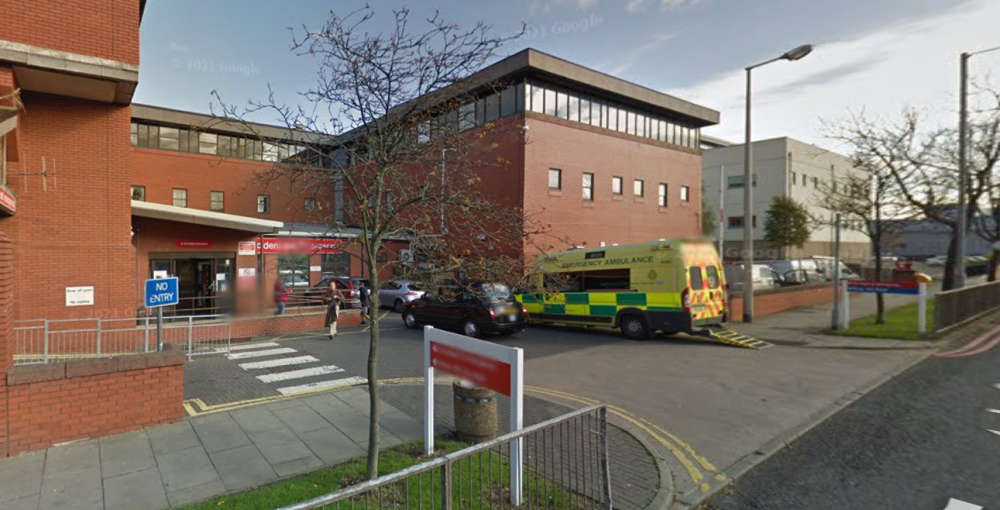
A man who believes his wife’s death was connected to significant asbestos exposure while working on a food processing line at Derbyshire-based Maconochie Brothers factory in the 1960s is appealing for information.
John Reed’s wife Patricia Ellison Reed of Glossop, Derbyshire, was aged 83 when she died of mesothelioma, an incurable and aggressive form of cancer linked to asbestos exposure, which takes decades to develop in an individual after exposure took place.
Patricia began working at the Maconochie Brothers (Hadfield) Limited factory in 1968 when she was 30. The factory had been purchased by Rowntree in 1967. Despite being a factory where food was handled, considerable levels of asbestos dust may have been present throughout the factory, which was old and contained extensive pipework, and the lagging had become frayed and loose and covered in dust.
Patricia was employed along the peanut butter processing line and her job was to take away the discoloured peanuts as they passed down the conveyor belts. She remembered that men would regularly disturb the asbestos lagging in order to carry out work on the machinery in the factory, including machines on the peanut butter line.
Patricia recalled that the factory roof was made of metal angle irons and corrugated asbestos sheets were placed on top of the metal shaft. She described how pigeons would land on the roof and create holes in the asbestos sheeting, creating dust which would fall into the factory below. She also said that on a number of occasions, maintenance men would cut holes in the roof above where she was working in order to replace the damaged sheets, which would create even more dust.
Scaffolding to enable the repairs was built close to asbestos lagged pipes that ran across the ceiling, said Patricia. It meant work men would often knock the lagged pipework with the end of the handle of a stainless-steel paddle, which caused asbestos dust to fall down from the pipes on to the workers below.
Patricia would do occasional work on the bottle washing machine. She recalled that the machine was fed by the same asbestos lagged pipes as throughout the factory. In addition, she described how the surrounding machines also used asbestos insulation boards as partitioning to separate the various different processes. The boards were often damaged as forklift trucks collided with them, which she recalled would create dust and debris which would fall on to the floor below.
Patricia left the factory in 1969, and it remained open until 2004.
After leaving the factory Patricia went on to become an archaeologist. Before her fatal diagnosis in August 2020, Patricia had been healthy and active and enjoyed gardening. However, following her diagnosis, Patricia grew increasingly unwell and experienced permanent breathlessness and became unable to clean, garden, or walk up the stairs.
Patricia and John approached the asbestos claims team at law firm Leigh Day to investigate her potential asbestos exposure at the Hadfield factory.
Patricia died on 25 June 2021 but John is continuing the legal claim on her behalf and is appealing for former workers at the Maconochie Brothers factory to come forward with any relevant information about the presence of asbestos.
Steve Dickens, partner in Leigh Day’s asbestos claims team, said: “Mesothelioma is a tragic diagnosis to receive and it left Patricia with drastically declined health, meaning she was unable to do the things she enjoyed in the final year of her life.
“We seek others who have worked at the Maconochie Brothers factory at the same time as Patricia who may be able to provide us with any information they hold regarding the use of asbestos throughout the factory. Any relevant information would be greatly appreciated by Patricia’s family.”
If you can provide any relevant information please contact Steve Dickens at SDickens@leighday.co.uk


 Bag a Vivienne Westwood
Bag a Vivienne Westwood
 Glossop mum gears up for Boston
Glossop mum gears up for Boston
 Cup delight for Glossop
Cup delight for Glossop
 Tameside and Glossop NHS Trust pays out over £1m for misdiagnosis claims.
Tameside and Glossop NHS Trust pays out over £1m for misdiagnosis claims.

